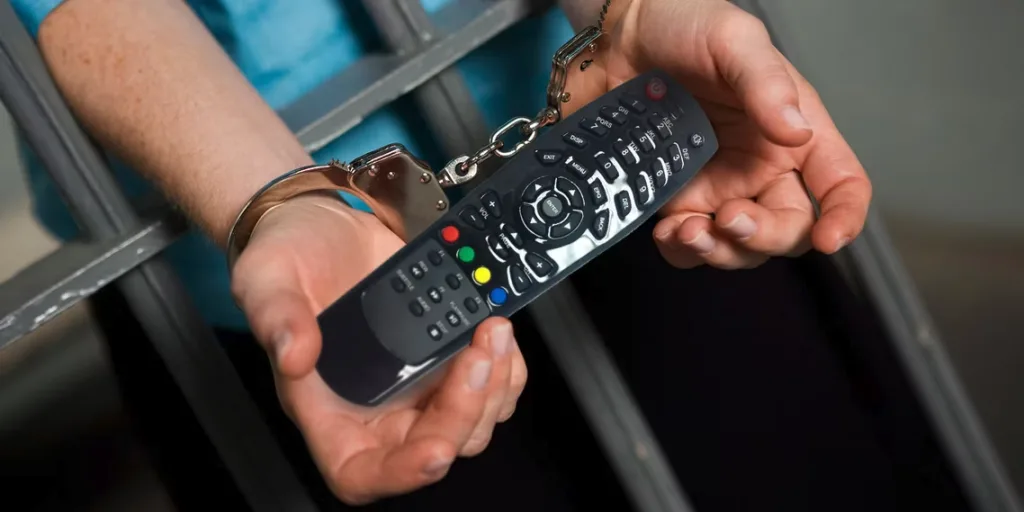
Table of Contents
Introduction to IPTV
Internet Protocol Television (IPTV) has rapidly grown in popularity as more people seek alternatives to traditional cable and satellite TV services. But with this growth comes questions about its legality. Is IPTV legal? The answer isn’t a simple yes or no. The legality of IPTV services depends heavily on whether the provider has secured the necessary licenses to stream content. In this article, we’ll explore everything you need to know about IPTV legality and how to ensure you’re using it safely and legally.
What is IPTV and How Does it Work?
IPTV allows you to stream TV channels and shows through the internet rather than traditional broadcast methods like cable or satellite. Services like Netflix and Hulu operate similarly to IPTV, but there’s a key difference: IPTV services typically offer live TV, whereas streaming platforms offer on-demand content.
While IPTV itself is a legitimate technology, the legal status of an IPTV service depends on whether the content provided is licensed. Many legal IPTV providers, such as RevoIPTV and others, operate with proper content licensing agreements. However, some IPTV services stream unauthorized content, which brings them into the illegal zone. Here’s how you can choose a legal IPTV provider.
Is IPTV Legal?
The simple answer to “is IPTV legal?” is yes—but only if the provider you’re using has acquired the proper licenses to distribute the content. Legal IPTV services pay the content creators and copyright holders for the right to stream TV channels and shows. On the other hand, some IPTV services offer streams without permission from copyright holders, which makes them illegal.
Illegal IPTV services infringe copyright laws by streaming channels and shows without securing rights from content creators. It’s important to understand the legal considerations for IPTV users because using unauthorized IPTV services can result in hefty fines or legal action. Legal IPTV providers, such as RevoIPTV, ensure that the content you are streaming is 100% legitimate and safe to use.
How to Identify Legal IPTV Providers
When considering an IPTV provider, you must be able to distinguish between legal and illegal services. Here are some key signs that can help you identify legal IPTV providers:
- Licensing Information: Legal IPTV providers will disclose their licensing agreements, either on their website or when you sign up.
- Price Transparency: If an IPTV service is incredibly cheap and offers every channel imaginable, it’s likely too good to be true.
- Reputable Providers: Look for known IPTV providers like RevoIPTV, which offers fully licensed content.
Remember, if the IPTV service doesn’t mention licensing or seems suspiciously cheap, it’s probably an illegal IPTV service.
Examples of Legal IPTV Services
Several well-known IPTV providers operate legally by adhering to the content licensing rules:
- RevoIPTV: A trusted and reliable IPTV provider that offers 100% licensed content.
- Sling TV
- YouTube TV
These providers ensure that viewers are not at risk of legal action, and the services they offer are fully compliant with broadcasting laws.
Recommended IPTV Provider: RevoIPTV
If you’re looking for a reliable and legal IPTV service, RevoIPTV is an excellent choice. RevoIPTV is a fully licensed IPTV provider, ensuring that all of its content is 100% legitimate. With a wide selection of live TV channels, movies, and sports, RevoIPTV stands out as one of the best IPTV providers available. Unlike other questionable services, RevoIPTV adheres to strict legal guidelines, ensuring that you enjoy high-quality content without risking any legal consequences.
Choosing RevoIPTV guarantees:
- Fully licensed content
- High-quality streaming
- Legal protection for users
If you want to stream without the risk, RevoIPTV is your safest and best option for IPTV.
Consequences of Using Illegal IPTV
Using illegal IPTV services can have serious consequences:
- Legal Action: Copyright holders may pursue legal action, which can lead to fines or even jail time.
- Service Shutdowns: Illegal IPTV services are often shut down without warning, leaving users without access to content.
- Data Security Risks: Many illegal IPTV providers do not follow proper data security protocols, putting users at risk of identity theft or malware infections.
For example, recent crackdowns on IPTV piracy have led to the shutdown of several major illegal IPTV services, with operators facing lawsuits and millions in fines.
Why Some IPTV Services Are Illegal
Illegal IPTV services violate copyright laws by streaming channels and content without permission from the owners. These services often source content from pirated feeds and redistribute them to users without compensating the original creators. This practice is not only unethical but also a violation of intellectual property laws.
Law enforcement agencies are increasingly cracking down on pirated IPTV services. High-profile cases in recent years have resulted in severe penalties for both the operators and users of these services.
Is IPTV Legal in Different Countries?
The legality of IPTV services varies by country, as different regions have different laws concerning broadcasting and copyright infringement. Here’s a brief overview:
- United States: IPTV is legal as long as the service provider has the necessary content licenses. Illegal streaming can result in legal consequences.
- United Kingdom: The UK has strict laws against IPTV piracy, with recent enforcement actions targeting both providers and users of illegal services.
- Europe: Many European countries have stringent copyright laws that make unauthorized IPTV services illegal.
To stay safe, always choose a legal provider like RevoIPTV, which operates within the law.
FAQs About IPTV Legality
What are the signs of an illegal IPTV service?
Illegal IPTV services often offer an unusually large number of channels for a very low price, lack transparency about licensing, and may have a poor or non-existent customer support system.
Can you go to jail for using IPTV?
Yes, using illegal IPTV services can lead to fines or, in extreme cases, even jail time. It’s essential to ensure that the IPTV provider you’re using has the necessary licenses.
Is IPTV legal if I only stream free content?
Streaming free content can still be illegal if the IPTV service doesn’t have permission from the copyright holders. Always check if the service is licensed.
Are free IPTV services always illegal?
Not necessarily. Some free IPTV services operate legally by offering limited content with proper licenses. However, many free services are illegal.
Can using a VPN make IPTV legal?
No, a VPN only hides your location. If the IPTV service is illegal, using a VPN doesn’t make it legal.
Conclusion
In summary, IPTV technology is not inherently illegal, but the service’s legality depends on the content licensing agreements in place. Users should be cautious and only subscribe to legal IPTV providers like RevoIPTV, which offer 100% licensed content. By choosing legal IPTV services, you can avoid the risks associated with illegal streaming and enjoy a wide range of content safely and securely.


